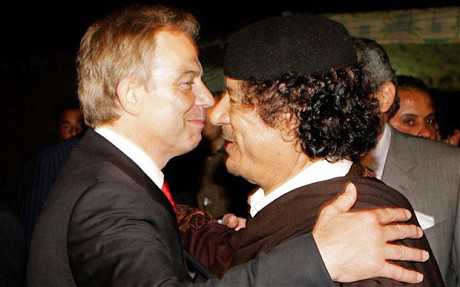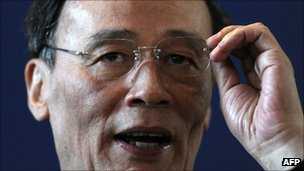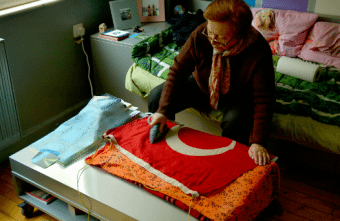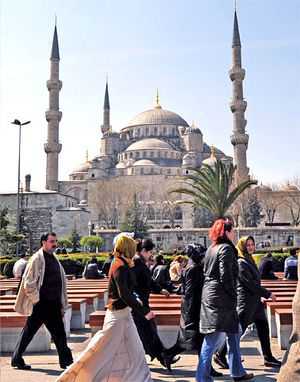Tony Blair used visits to Libya after he left office to lobby for business for the American investment bank JP Morgan, The Daily Telegraph has been told.

By Richard Spencer, Tripoli, Heidi Blake and Jon Swaine in New York
A senior executive with the Libyan Investment Authority, the $70 billion fund used to invest the country’s oil money abroad, said Mr Blair was one of three prominent western businessmen who regularly dealt with Saif al-Islam Gaddafi, son of the former leader.
Saif al-Islam and his close aides oversaw the activities of the fund, and often directed its officials on where they should make its investments, he said.
The executive, speaking on condition of anonymity, said officials were told the “ideas” they were ordered to pursue came from Mr Blair as well as one other British businessman and a former American diplomat.
“Tony Blair’s visits were purely lobby visits for banking deals with JP Morgan,” he said.
He said that unlike some other deals – notably some investments run by the US bank Goldman Sachs – JP Morgan’s had never turned “bad”.
Documents found by The Sunday Telegraph published this weekend showed Mr Blair had made at least three visits to Tripoli, twice in the lead-up to the release of the alleged Lockerbie bomber Abdelbaset Ali Megrahi in 2008 and 2009 and once last year. On the first two occasions he was flown to the country on planes arranged by Col Gaddafi.
A senior diplomat told The Daily Telegraph last night that the British embassy in Tripoli had arranged transport for Mr Blair and his entourage in Tripoli and ensured that representatives were there to “greet him and see him off” at the airport.
Mr Blair stayed overnight at the ambassador’s official residence in Tripoli and was accompanied by “several” British police officers for protection.
The documents show that among the people he was due to meet in 2009 was Mohammed Layas, head of the LIA.
A spokesman for Mr Blair said that the visits had largely been to discuss Africa, and categorically denied that he had lobbied Said al-Islam on behalf of JP Morgan.
The spokesman said last night: “As we have made clear many times before, Tony Blair has never had any role, either formal or informal, paid or unpaid, with the Libyan Investment Authority or the Government of Libya and he does not and has never had any commercial relationship with any Libyan company or entity.”
Mr Blair began work in January 2008 as a £2million-a-yearn adviser to JP Morgan. Last month, American officials told the New York Post newspaper that the bank managed more than half a billion US dollars on behalf of the LIA.
The executive said that he did not see Mr Blair at the LIA headquarters in the modern Tower of the Revolution overlooking the seafront. He said officials like himself were given their instructions by two senior Saif aides, including Mohammed Ismail, a Libyan with British nationality.
One of the letters arranging the 2008 visit, in which an aide to Mr Blair told the Libyan ambassador to Britain that the former prime minister was “delighted” that “The Leader” was likely to be able to see him, was on notepaper headed “Office of the Quartet Representative”, his formal title as Middle East envoy.
The Quartet he represents is made up of the European Union, the United Nations, Russia and the United States. A spokesman for Ban Ki-moon, the UN secretary general, said: “It’s up to him to explain why he did this.”
The growing closeness of the Blair government to the Gaddafi regime has already come under fire. Abdulhakim Belhadj, former leader the Libyan Islamist Fighting Group and now head of the revolutionary Tripoli Military Council, is demanding an apology after papers showed MI6 arranged for his secret extradition from Malaysia back to Libya in 2004.
Many ordinary Libyans have also expressed surprise at the policy. After the latest revelations, Hoda Abuzeid, a British Libyan whose dissident father was murdered in London in 1995, accused Mr Blair of “selling out”.
“People like Blair and those who had their eyes on the business opportunities that Gaddafi could provide sold out people like my family,” said Miss Abuzeid, who has returned to the country for the first time since 1980.
“When he had tea in the desert with the ‘Brother Leader’ did he ever ask him who killed my father?”
www.telegraph.co.uk, 18 Sep 2011





